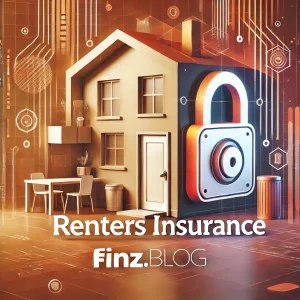Understanding Renters Insurance: Coverage Basics
Many renters overlook the importance of renters insurance coverage options. This insurance protects personal belongings from unforeseen events like theft or fire. It’s not just a safe bet; landlords often require it. A common misconception is that your landlord’s policy covers your belongings. However, this is far from reality.
When seeking affordable renters insurance, compare quotes diligently. Understanding what each plan covers can be confusing, though. Typically, policies include coverage for personal property, liability, and additional living expenses if your home becomes uninhabitable. Yet, not all items are covered—antiques or certain high-value items might need extra coverage.
Why Should You Consider Renters Insurance?
First, renters insurance protects you financially against unexpected losses. Second, it offers liability protection, shielding you from potential lawsuits. Ultimately, renters insurance quotes vary widely, but the peace of mind it brings is invaluable. So, before you rent, consider investing in this essential protection.
Mold Coverage in Renters Insurance Policies
Mold can be an unexpected issue for renters, often confusing coverage. Most standard renters insurance for apartments usually does not cover mold damage unless it results from a covered peril, such as a burst pipe. If mold develops from negligence, like a leak ignored over time, you may be left with the bill. However, some insurers offer additional mold coverage or endorsements for an extra cost, providing peace of mind.
Tenants must thoroughly review their renter’s insurance requirements to understand their specific coverage. Not all best renters insurance companies include mold protection in their standard policies, making research crucial. As you navigate your insurance options, clarify the terms with your provider. Always ask about exclusions and limits regarding mold. Stay informed to ensure your living space remains safe and your belongings are protected against mold damage.
Exclusions and Limitations: What Renters Insurance Doesn’t Cover
When considering renters insurance, it’s crucial to understand what it doesn’t cover. Many people mistakenly believe that all forms of damage are included, but that’s not the case. For instance, standard exclusions include damage from natural disasters like earthquakes or floods. Renters might assume their policy protects them against these events, but typically, separate coverage is needed.
Moreover, renters insurance generally does not cover personal property used for business purposes. If you’re running a home-based business, your standard policy won’t include losses related to that endeavor. This limitation can surprise many. Additionally, intentional damage or losses resulting from neglect are not covered, leading to further confusion.
It’s essential to compare renters insurance vs homeowners insurance to grasp the differences in coverage. While homeowners insurance tends to be more comprehensive, renters insurance focuses primarily on personal property and liability. Overall, being informed about exclusions ensures you make better choices regarding your financial protection.
Preventing Mold Growth: Tips for Renters
Mold can thrive in damp and poorly ventilated areas, making it essential for renters to take preventive measures. First, maintain a consistent humidity level in your home. You can achieve this using a dehumidifier or ensuring proper ventilation in rooms like the kitchen and bathroom. Additionally, leaks or water damage can be repaired promptly; a small drip can lead to substantial mold growth over time.

Regular Cleaning
Another important tip is to clean regularly. Pay special attention to areas prone to moisture, such as around windows and in corners of showers. Use mold-inhibiting cleaning products to ensure that spores do not settle. Also, consider storing clothes and books in dry, well-ventilated spaces. If left in humid conditions, they can become breeding grounds for mold.
Finally, familiarize yourself with your lease agreement regarding mold issues. Understanding your rights as a renter can help you act swiftly if mold becomes a problem. By taking these steps, you can enjoy a healthier living environment.
How to File a Mold Claim Under Your Renters Insurance
Filing a mold claim under your renter’s insurance can seem complicated, but it doesn’t have to be. First, review your policy to understand what is covered. Many policies offer protection against mold damage, but coverage varies widely, which is confusing.
Next, document the mold damage thoroughly. Take clear photographs and gather relevant correspondence with your landlord about the issue. This evidence is crucial when filing your claim. Then, contact your insurance provider. They will guide you through the process, often requiring a claim form to be filled out. Here, you might feel overwhelmed with insurance jargon and forms.
Once you submit your claim, be prepared for an inspection. An adjuster will assess the damage and determine the amount your claim is worth. Remember, prompt action is essential; delays can complicate your claim. Lastly, keep communication open with your insurer to ensure a smooth process.
The Importance of Personal Property Coverage for Mold Damage
Mold can be an insidious threat to your home, often lurking in damp corners and unseen areas. Personal property coverage is critical in protecting your belongings against such damage. When mold takes hold, it may ruin your furniture and clothing and lead to significant repair costs if left unchecked.
Many homeowners underestimate the need for adequate insurance that explicitly addresses mold-related damage. Standard policies may exclude such coverage, which is why it’s essential to review your policy details. If your property sustains mold damage due to a covered peril, having strong personal property coverage ensures you cannot bear the financial burden alone.
Moreover, this coverage can assist in remediation efforts, helping you restore your home to a safe and livable condition. Remember, the peace of mind that comes with knowing you’re protected is invaluable. Take the time to assess your options to safeguard against mold damage effectively.
State Regulations and Their Impact on Mold Coverage
Understanding state regulations regarding mold coverage can be complex. Each state has distinct laws that govern how insurance companies address mold-related issues. Some states offer comprehensive coverage options, while others adopt more restrictive measures, which can confuse homeowners. For instance, specific regulations may dictate whether mold damage is included under standard homeowners insurance policies or treated as a separate peril.
This variation in coverage can significantly affect policyholders. Homeowners in states with stringent regulations might find it harder to obtain mold coverage. Others might face higher premiums as insurers assess the risks associated with mold claims. Homeowners must be proactive, reviewing their policies and understanding their rights under local laws. Staying informed can prevent unforeseen financial repercussions and ensure adequate protection against mold-related damages.

The Role of Landlords in Mold Prevention and Responsibility
Landlords play a crucial role in mold prevention and have significant responsibilities. A well-maintained property can minimize the risks associated with mold growth. Regular inspections are vital. Landlords should check for leaks, damp areas, or any signs of water damage, as these are common precursors to mold issues.
Furthermore, timely repairs can prevent minor problems from escalating into more significant hazards. For instance, if tenants report a minor leak, a landlord should address it promptly to avoid damp walls that encourage mold. Education is also essential. Landlords should inform tenants about proper ventilation and humidity control. This balanced approach protects the property and contributes to a healthier living environment.
Ultimately, mold prevention is a shared responsibility. While landlords must take proactive measures, tenants should also remain vigilant. Together, they can create a mold-free home, ensuring safety and comfort for everyone involved.
Is Additional Mold Coverage Necessary for Renters?
For renters, whether to obtain additional mold coverage can often be perplexing. Many assume their standard renter’s insurance will suffice, providing essential protection against common hazards. However, mold issues can arise unexpectedly, usually costing tenants significant damages. Mold can develop in hidden areas, making it hard to detect early.
Not all standard policies include coverage for mold damage, and the limits may vary significantly. This discrepancy adds to the confusion, as some renters believe they are protected when they are not. Additionally, many landlords may not be held responsible for mold growth due to tenants’ negligence. Therefore, considering additional mold coverage is advisable.
Ultimately, renters should carefully review their policies and consider their living environment. Ensuring complete protection can save both time and money in the long run. Before making a decision, weighing the risks involved is vital.
https://www.progressive.com/renters-insurance/





